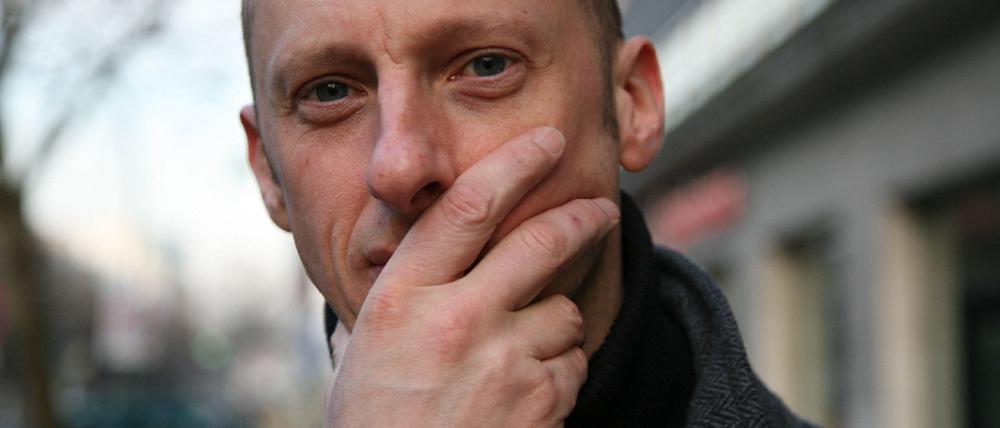
© Thilo Rückeis
Mark Espiner: CCTV: Invasion of privacy
I tried to work out why I felt physically different in Berlin from in London and it suddenly hit me.
My German museum free entry plan got some of you a little bit heated up. Relax, guys. It was only an idea. Thanks, as always, for your comments though.
As “Guderian” asked me: “Wenn die Museen in London so toll sind, was machen Sie dann noch hier?” Fair enough. Well, OK, leaving aside the small issue of museum entry there are of course loads of things where Berlin is positively different and why I love being here.
On my first visit just over a year ago, I clearly remember walking around Mitte feeling really free. My stride was liberated, I had a spring in my step. I tried to work out why it was that I felt physically different here from in London and it suddenly hit me: I wasn’t being stared at by CCTV cameras. In London they bristle on every corner; bushes of lenses catch your every move. It’s impossible to avoid them. You’re caught on camera literally hundreds of times a day.
In fact, that was one of the reasons I moved here - to get away from the prying eyes of the CCTV operators and this invasion of privacy.
I’ve recently been back to London, though, researching how far surveillance has gone in the UK for a new theatre piece I’m working on. Besides writing for Tagesspiegel, you see, I also co-direct and create theatre.
Returning to Britain’s capital after my time in Berlin, the numbers of cameras were shocking.
As part of my research I’ve visited a couple of the CCTV monitoring centres in London. One is in a bunker near Leicester Square. In the dingy room, deep below the streets, behind 60 or so screens linked to hundreds of the street cameras, the operators zoom in on anyone looking suspicious in detail. It’s scary how close-up they can look at you. And you wonder why they have singled out the people that they are observing.
It’s not just in the streets, though. There are even cameras at the entrance to Hampstead Heath. Imagine going to Volkspark Friedrichshein or for a stroll in Tiergarten and seeing that you’re being watched.
Mind you, since I’ve moved here there seem to be more “Video Überwachung” signs than I remember from my first visit. There’s even one in the lift of my block. But at least there’s a sign for them now, in the Stasi days they weren’t that polite.
In fact, it’s your history that probably explains why you’re not so enthusiastic to have the state spying on you (again). As the British academic and journalist Timothy Garton Ash - who himself had a Stasi file and who wrote about it in this great book - has pointed out: “Precisely because German lawmakers and judges know what it was like to live in a Stasi state, and before that in a Nazi one, they have guarded these things [privacy] more jealously than we, the British, who have taken them for granted. You value health most when you have been sick”.
But let me sound a little note of warning - lest you Berliners become complacent - and highlight something that has taken over in Britain and which seems to be on its way here with a few of the new developments. Property developers are building smart glitzy shopping centres and posh gated residential communities which replace the public streets and, because they are privately run, they come complete with their own CCTV and sometimes their own security guard police force. It’s to provide the residents and shoppers, they claim, with “protection” and “security”. But it ignores the fact that you didn’t ask for this kind of protection or security which is in fact neither - as some experts have pointed out.
I have to say, I’d happily carry on paying for your museums if you can keep the cameras out of Berlin - even on these “private” developments. Keep an eye on the rise of CCTV, before it keeps an eye on you.
By Mark Espiner
- showPaywall:
- false
- isSubscriber:
- false
- isPaid:
- showPaywallPiano:
- false